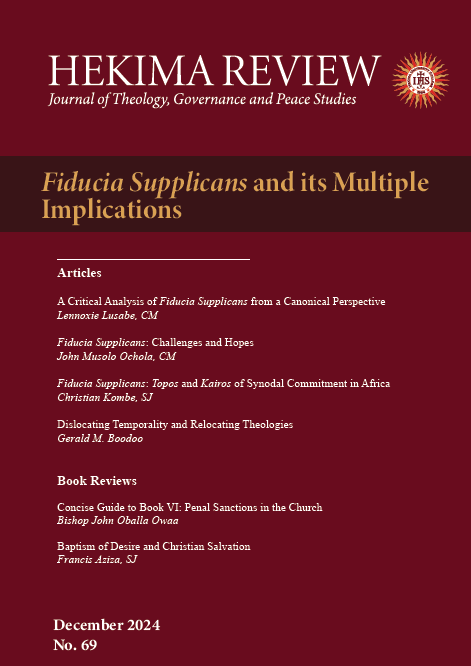A CRITICAL ANALYSIS OF FIDUCIA SUPPLICANS FROM A CANONICAL PERSPECTIVE
DOI:
https://doi.org/10.21217/dm4zem08Keywords:
Fiducia Supplicans, Canon LawAbstract
This paper critically analyses the document Fiducia Supplicans from a Canonical perspective. Fiducia Supplicans considers realities in contemporary society by extending a more flexible response to those in non-traditional marriages while trying to balance with the longstanding Canonical teachings of fundamental realities such as marriage. Entwining with some of the key points in the 1983 Code of Canon Law, this paper focuses on those Canons related to marriage, blessings, and the responsibilities of the bishops in pastoral care. It raises possible conflicts arising from the need for pastoral care of people in non-traditional marriages and Canon Law teachings on marriage, both with effects on the authority of the Church and community identity. By allowing dioceses to interpret and apply the document differently, there is the danger of a lack of unity, leading to a possible doctrinal confusion that might weaken the Church’s teaching on marriage. However, it also does so by shining a light on the dimensions that look promising for Fiducia Supplicans to be able to enhance spiritual connections for individuals and families today. This paper urges for further dialogue within the Church about a proper balance between pastoral efforts and adherence to Canon Law—not simply an either/or trade-off but a way that will respond to both the spiritual and theological concerns it raises, as the Church remains faithful to her own long-cherished tradition.
Downloads
Downloads
Published
Issue
Section
License
Copyright (c) 2024 Hekima Review

This work is licensed under a Creative Commons Attribution-ShareAlike 4.0 International License.


